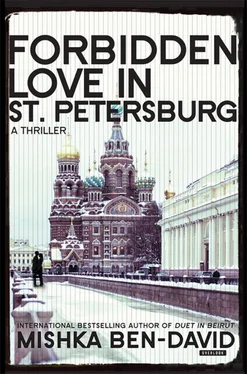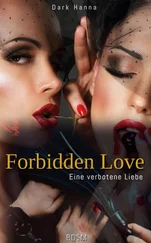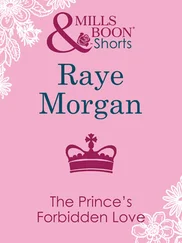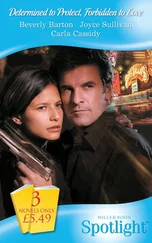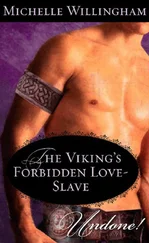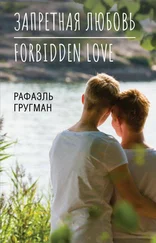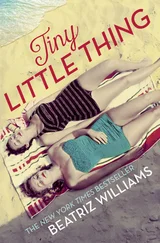She hardly touched the meal I’d prepared for us–convenience food that couldn’t, of course, compete with the rich array of her soups. We went down to the seafront together and on the way we bought some clothes which she put on immediately, discarding those she’d arrived in.
It was the beginning of spring and a mass of people had come to the seafront to celebrate the end of the rainy season. The lively sights around us fascinated her; bicycle riders, balloon salesmen, couples walking at speed along the promenade, restaurants teeming with life all along it, parasols, swimmers, surfers, and people playing paddle ball on the beach.
I didn’t imagine it like this, she said. In fact, I didn’t imagine anything. Only you. And for the first time, at her own initiative, she hugged me and pressed her head into my shoulders. I wanted to believe that she was once again trusting me and my love.
Marozhina ? Anna asked and pointed at the ice cream stand. With a huge cone in her hand, the withered woman in front of me returned for a moment to being a little girl.
We continued to walk and when Anna felt tired we went back to my apartment where she fell into a deep sleep. Towards sunset again we went down to the seafront and Anna asked to be left alone for a few minutes. She stood on the shoreline, hands crossed, hugging her shoulders, and gazing towards the horizon. She didn’t move even when the tide came in and the sea occupied more and more of the sandy beach and swept over the shoes we had just bought. Birds circled above her, seagulls squawked, and still her eyes were set beyond the skyline and towards her native land. I remembered myself standing just like that, very close to the very same spot on a wintery night immediately after I’d been released from the various interrogations I’d had to endure, my heart yearning for her. What was Anna yearning for?
As the sun descended below the horizon, leaving only the shades of twilight behind, Anna signalled to me to come to her. I held her outstretched hand, and we remained silent. The colours of night began to gather in the northern and southern skies, while in the west the purple of sunset hung on. Now the soles of my feet were also sunk in water and when I hugged Anna to shield her from the westerly wind I could feel her back trembling under my embrace. She turned her face towards me, a smile on her lips, her eyes filled with tears. I could feel the pain of her parting from what lay over there across the sea, but didn’t come close to guessing its enormity. My heart ached for her.
Suddenly, in a somewhat theatrical movement, she stretched her hand towards me. Mila Ivanovna Pirova, she said, and you are?
Yogev Ben-Ari, I answered, confused. It had never occurred to me that Anna was not her real name. But I want to go on calling you Annushka.
Anna’s eyes shone as they looked right into me. Anna or Mila, Petrovna or Ivanovna, Starzava or Pirova, it really doesn’t matter what the KGB called me and which name it forced me to live with. Actually, she reflected, it also doesn’t really matter very much what my parents called me, what my father’s name was, or what Mikhail’s family name was. I want to be known by your name, she said, and tried to pronounce it but with only partial success. She made Ben-Ari sound like Bain Ari. I tried out Mila, but the name didn’t arouse a feeling of intimacy. Millie sounded a little better but I stayed with Annushka.
At intervals during the evening Anna continued to tell me her story. There’s a bit of truth in what I told you when we met, she said with an ironical smile. She really was a widow, she was widowed ten years beforehand, and her husband was, indeed, killed in a road accident and his name truly was Mikhail. But the ‘Mikhail’ in the pictures in her apartment was a colleague of hers at work, and photos were taken just for me to see.
Why didn’t you have pictures of your real husband? I wondered, a question mainly prompted by professional curiosity.
A long and difficult story. Our life as a couple wasn’t good, and during one of our many separations I threw out all the photos of us together.
They really didn’t have children. Anna had had an abortion beforehand, and when she became pregnant by Mikhail they were too young, were living the boisterous lives of students, and felt that a child would be a burden.
We were sort of opponents of the regime, she said. I was afraid of going to a government-run hospital, and putting myself in their hands. With the little money we possessed I had an abortion done privately by an unlicensed doctor and bled for weeks on end. I didn’t think I could ever give birth but relations with Mikhail had anyway deteriorated and I had no desire to bring a child into our quarrels and into the double life I’d been forced to lead. I deeply regretted this for a long time even after Mikhail’s death.
She looked straight into my eyes as if trying to read my mind. I thought this was the right time to tell her the truth about the embryo of mine that had died, but felt that this wasn’t the question Anna was asking, that this wasn’t the response she was looking for from me, and kept quiet. She tried to say something else, but didn’t.
We returned home holding hands but our souls had been sundered and we found ourselves engaged in a Sisyphean effort to repair the damage.
Later on I learned from her that what she had told me about the Conservatoire was true, as were the stories about her higher education at the Institute for Russian Literature and her love of music and books.
So how did you fall into the arms of the KGB? I asked in astonishment.
Don’t you know that half the population of the Soviet Union was in the KGB? You were either an informer or you were being informed on.
So you decided to be an informer? I asked in a slightly tremulous tone of voice.
No, in fact people informed on me. Gorbachev started with his reforms, which were strenuously opposed by the communists and the KGB. I, then a young student, was a keen supporter of the reforms. I was arrested while participating in a demonstration and was given a suspended sentence. A few years later, when the conservatives and the KGB attempted to mount a coup against Gorbachev and detained him in his dacha, I took part in organizing the demonstrations against the attempted coup, was squealed on, and again arrested. Added to the suspended sentence, which they threatened to enforce, I was facing going to prison for many years. The KGB proposed that I become one of its informers and I refused. Then they brought Mikhail in–at that time my boyfriend who I was thinking of marrying–and told me that he too was due to be jailed. This was in 1990. We were in our mid-twenties and when the interrogators said I’d come out of jail ‘a wrinkled old woman’ I broke down. Which is the way I did indeed emerge from there, she said, smiling sadly.
I kissed her head as we sat together on a wide rocking chair bathed only in a halo of light which illuminated the large window.
And then you agreed, I whispered.
Yes. I thought, so I’ll say yes, I’ll save Mikhail’s skin and my own, and then I’ll simply ignore anyone I see with some banned material, or anything else. But it didn’t work out that way. When they knew about someone and it was up to me to supply the proof and I didn’t succeed in doing so, they threatened to jail me. More than once a ‘comrades’ court’ was arranged and each time I was given ‘one more chance’.
Nor did I put up much of a fight. By then I no longer had any dreams left. I had dreamed of becoming a pianist and understood that I wouldn’t be one, she said in a tearful voice. I dreamed of being a poet, and realized that this too wouldn’t materialize. I’m a realistic woman, and back then I was a practical young person. I heard the way talented people played music and knew how real poets wrote. I knew I didn’t possess those gifts.
Читать дальше
